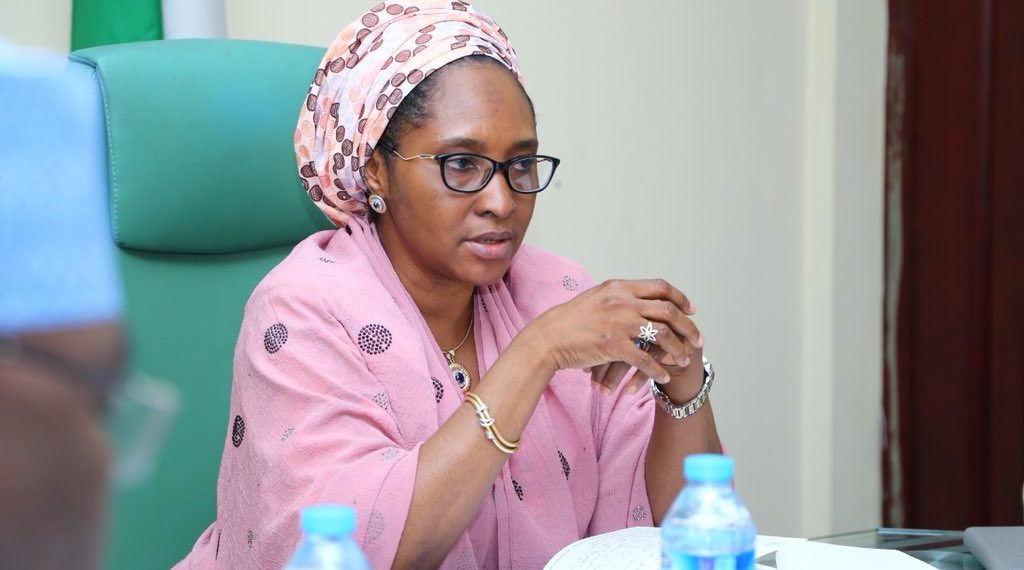Shaping A More Gender-inclusive Extractives Sector

It is no secret that the extractive industries are a male-dominated sector. Evidence suggests that while the benefits of extractive industry projects are enjoyed primarily by men, it is women who bear a disproportionate share of the negative social, economic and environmental impacts. The EITI Board has agreed to revise the EITI Standard to include provisions which will make the EITI more gender-responsive. The EITI Secretariat spoke to Zainab Shamsuna Ahmed, Nigeria’s Minister of Finance, who offered her views on how to promote women’s participation in the extractives. Excerpts
In your view, what are the main challenges facing women in the extractives sector?
Zainab Ahmed: As a traditionally male-dominated industry, the extractives sector has been particularly susceptible to gender bias and systematic discrimination across its value chain. Women are underrepresented at all levels, particularly in national and international leadership roles. Consequently, their views and interests are not considered in shaping the sector and they are less likely to benefit economically. There is also an insufficient pipeline of women and girls with the necessary educational background and work experience to enter the sector. At the project level, women are often not consulted by governments and companies during community engagements, in part due to structural barriers such as lack of information.
These challenges are amplified by a general lack of policies and regulatory frameworks aimed at identifying and protecting the rights of women and ensuring equal representation and access across the sector. The lack of credible and readily available data – particularly disaggregated data – means that governments, companies and other stakeholders are limited in their ability to make informed decisions and develop gender-responsive policies, programmes and budgets to tackle inequalities.
How can supporting women in the extractives industry benefit the sector as a whole?
Zainab Ahmed: By empowering women and ensuring their full participation in leadership and decision-making roles, we can ensure (1) increased transparency and accountability at all levels; (2) more inclusive partnerships at the community level, leading to better protection for the most vulnerable; and (3) stronger emphasis on addressing the industry’s environmental impact. A gender-balanced and inclusive approach to the extractives sector will empower women economically, resulting in stronger economies overall. According to the World Bank, extractives companies with women in leadership positions see 5-20percent more profit and more robust corporate governance and transparency.
Supporting women in the extractive sector will lead to improved and more sustainable economic, social and environmental outcomes, and move us all one step closer to realising the UN Sustainable Development Goals.
What actions need to be taken to make extractives more inclusive for women?
Zainab Ahmed: Evidence shows that gender-neutral policies are often applied in ways that exclude and disenfranchise women stakeholders and other vulnerable communities. Governments need to develop policies, regulatory frameworks and programmes that target women, so as to remove the socio-economic and cultural barriers that prevent them from participating fully in, and benefitting economically from, the extractives sector. Women must have a seat at the table to participate in decision-making in the sector more generally, as well as to contribute to the development of gender-inclusive strategies more specifically. They must also be given the support and tools with which to participate, and women’s views must be taken into account at the project and community levels.
It is important to develop programmes that encourage women and girls to study engineering and other fields related to the extractive industries, with mentorship and support to ensure their advancement in the field. Companies should also take responsibility for this by developing strategies and programmes aimed at hiring, promoting and retaining women. Finally, it is important to promote the participation of women-owned small-medium enterprises (SMEs) in the extractives industries through inclusive financing structures and improved access to information and opportunity across the industry value chain.
How can data disclosure help improve gender inclusion?
Zainab Ahmed: Data disclosure is critical to improving gender inclusion because it provides governments, companies and other stakeholders with information needed to identify areas where women are disproportionately underrepresented or marginalised. Only then can they respond with the necessary interventions. It also ensures transparency and accountability and allows for citizens to engage with issues affecting the inclusion of women and other vulnerable communities. For example, requiring companies to disclose employment statistics disaggregated by gender would help inform more inclusive hiring practices.
As we consider the importance of data disclosure, we must also ensure that women are given equal opportunities to access data, and that data is disaggregated along gender lines where possible. This will ensure greater transparency and accountability in line with the principles of the EITI.
Culled from eiti.org



























